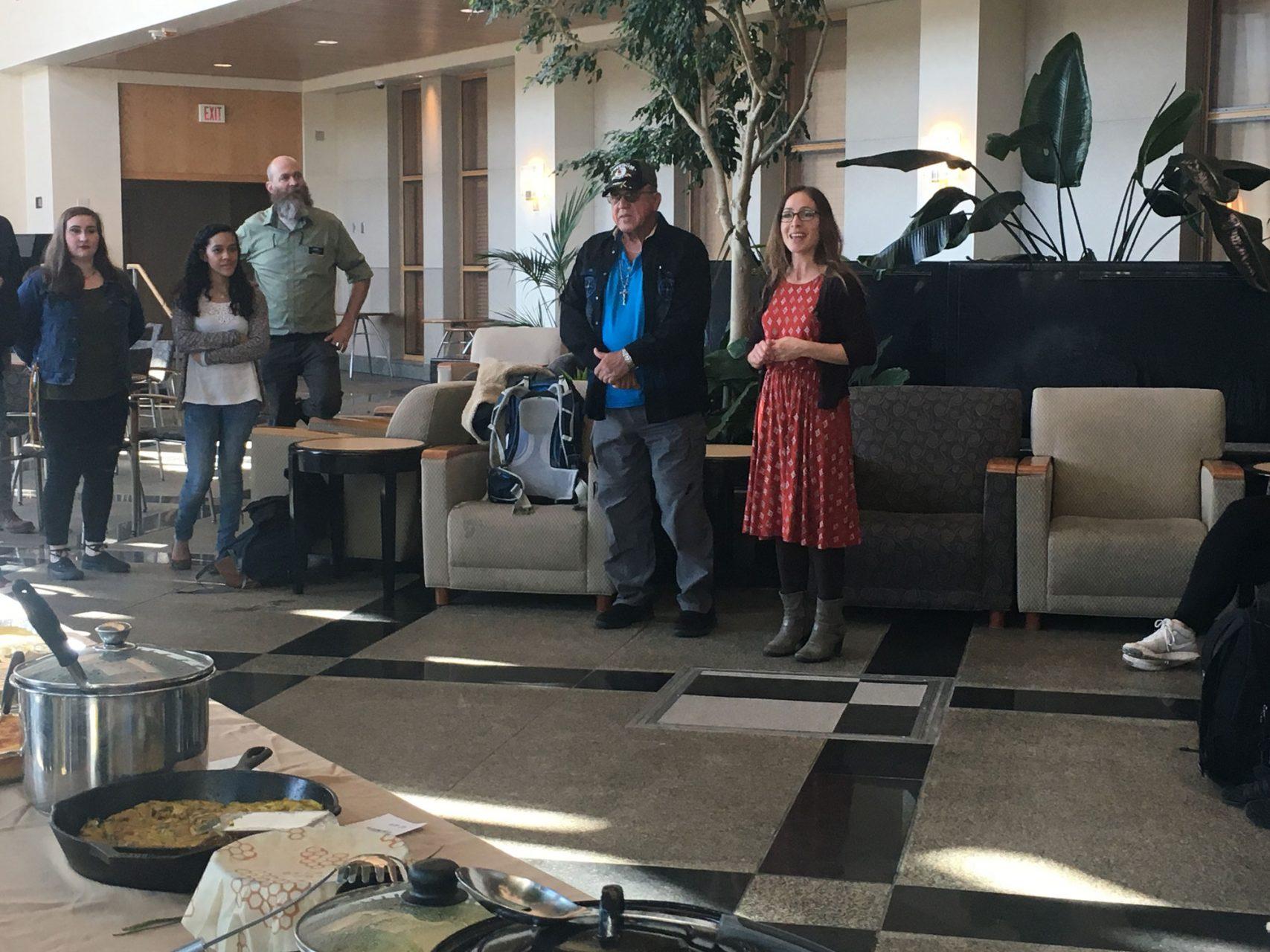As a part of Climate Justice Month, Traditional Chief Albert Naquin, tribal leader of the Band of Biloxi-Chitimacha-Choctaw tribe, visited Appalachian State for a potluck, seminar and screening of a short film focused on climate change on April 11.
The Biloxi-Chitimacha-Choctaw tribe, which resides on the Isle de Jean Charles, Louisiana, is being forced to relocate due to rising sea levels. The community became scattered over time as the land began to disappear.
“Climate change is affecting particular communities in really severe ways,” Laura England, a senior lecturer in sustainable development, said. “Some communities are bearing a disproportionately heavy burden, most notably coastal communities and indigenous communities.”
The short film that was screened in I.G. Greer Hall, “We Are All Related Here”, is focused on the Yup’ik, indigenous arctic people of Alaska who are also being driven from their native land because of climate change and a rising sea level.
“So often when we talk about what individuals can do to help address climate change, it’s about walking or riding your bike or using less electricity,” England said. “These are all individual life changes, which are all very important, but we also need to act in a way that’s collective.”
Although the Office of Sustainability and the Climate Stories Collaborative have made their own strides, England encourages students to engage in political activism for long-term change.
“There needs to also be political action, such as talking about how important these issues are and what they mean to us to our political representatives at state, federal and international level,” England said.
Climate Justice Month, which promotes awareness of climate change and how it affects people, brought Chief Naquin to Appalachian State to share the story of his tribe and how they have been forced to relocate.
“Having Chief Naquin here gives a real face to an issue of science or policy or politics,” England said. “We’re trying to bring real stories with real people here throughout Climate Justice Month, but this event is the one case where members of the Boone community get to hear firsthand of a community that is very severely being affected by climate change.”
The Isle de Jean Charles has been reduced from 11 miles long and 5 miles wide in the 1950s, to just about a quarter-mile wide and 2 miles long in 2016, according to Indian Country Today.
Rising sea levels are just one result of climate change, a majority of it stemming from human impact over time. Clubs focused on sustainability as well as the Sustainable Development Department enforce the idea that change comes from small steps as well.
“A part of change comes from taking big steps, but a lot of it comes from taking little steps and one of those is through our daily decisions and rethinking things that we take for granted,” Rick Rheingans, chair of the Sustainable Development Department said. “We need to not be silent and sometimes that means being an activist and protesting, but it also means being willing to talk about things that are sometimes uncomfortable with people like your family members or your friends.”
In January 2016, the U.S. Department of Housing and Urban Development announced that it would award the tribe $48 million to move inland, which would make the Biloxi-Chitimacha-Choctaw tribe the first community of official climate refugees.
Although Chief Naquin is “ecstatic” to have received assistance from the United States government, it makes the move no less emotional for the tribe as the Isle is their native land.
“Sometimes we think that it’s about the ideas and it’s about the knowledge, but when you hear somebody talk about a story on personal terms, it makes it much more emotional and it makes you feel much more connected,” Rheingans said.
The idea behind the potluck, seminar and screening was to give Appalachian State students an opportunity to ask questions and learn about the indigenous communities in Louisiana and Alaska who are the first climate refugees in America.
“I think that having Chief Naquin visit the campus and speak to so many individuals gives us all a more urgent sense of the impact of climate change,” Lainey Everly, president of the Sustainability & Environmental Education Club, said. “It can be easy to read a story and understand the issues at hand, but it’s another thing entirely to fully engage our knowledge of the problem, ask questions and empathize with those being impacted.”
Story and Photo by: Gianna Holiday, A&E Reporter
Featured Photo Caption: Senior lecturer in the Sustainability Department Laura England welcomes Chief Albert Naquin to Appalachian State.


